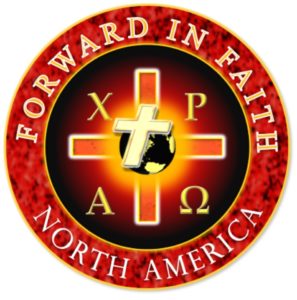The following seminarians have been awarded Forward in Faith Scholarships, funded by the Swartz Trust:
The Rev. Dcn Charles J. Arturo, Missionary Diocese of All Saints Attending Nashotah House.
Mr. Luke A. Childs, Anglican Diocese of San Joaquin, Attending Nashotah House.
Mr. Andrew Hurt, Diocese of Mid-America (REC) Attending Cramner Theological House.
Mr. David A. Peterson III, Anglican Diocese of San Joaquin Attending Nashotah House.
Mr. Jared M Wensyel, Diocese of Mid-America, REC, Attending Cramner Theological House.
The Swartz Trust was established: “…specifically for the purpose of training male seminarians for the priesthood and furthering the education of priests in evangelism.” Scholarships are for $2,500.
To apply for this financial assistance, click on the Scholarship link on this website or apply by email to Fr. John Himes: fr_john_himes@hotmail.com



